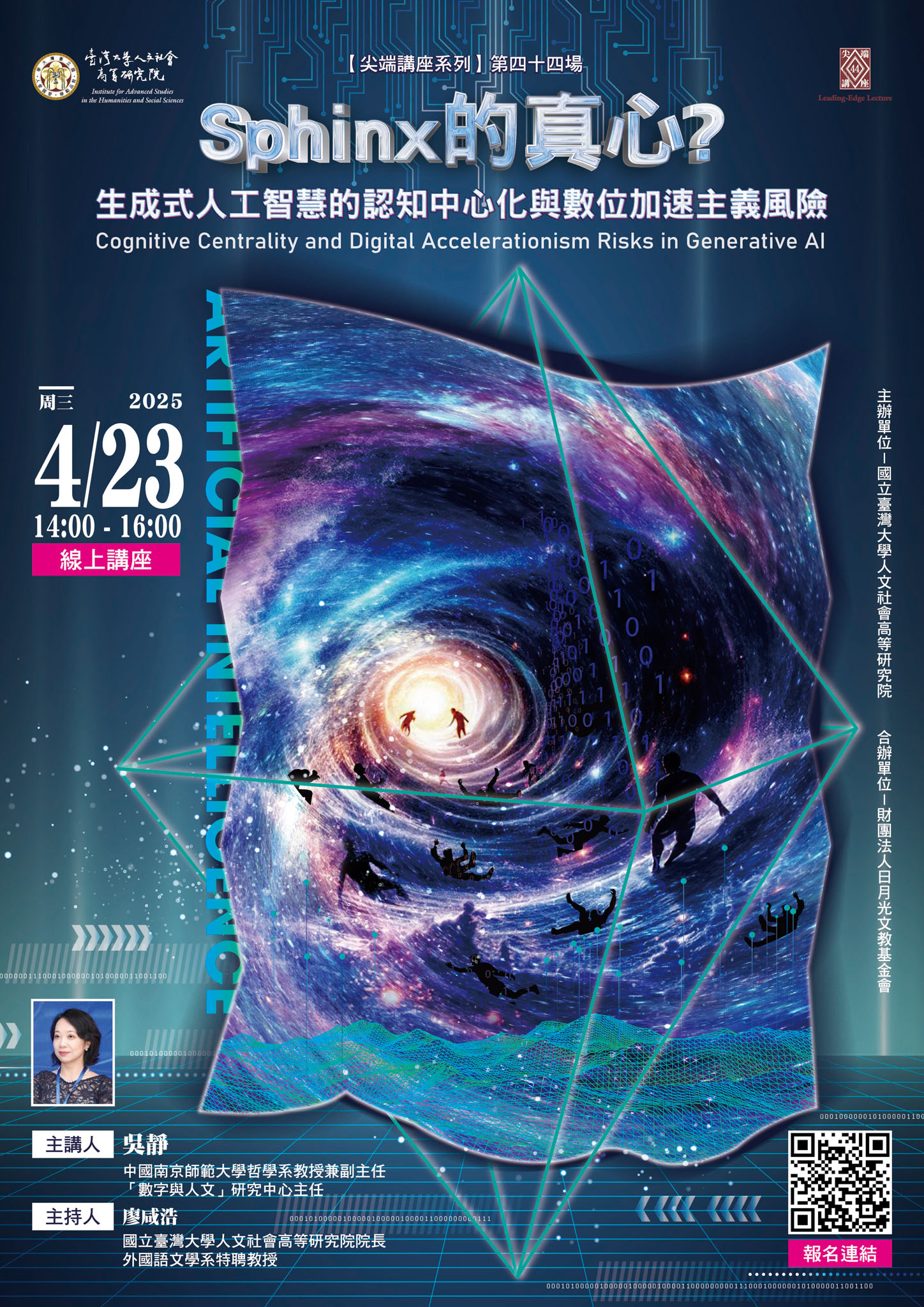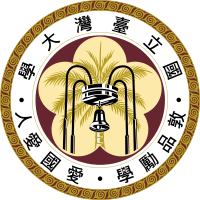【Leading-Edge Lecture 44】Cognitive Centrality and Digital Accelerationism Risks in Generative AI

Date:April 23, 2025 (Wed)
Time:14:00 – 16:00 (GMT+08)
Cisco Webex Online Conference
Sign-up Link:https://forms.gle/Gzv1geFZWCL5bxf17
Speaker:吳靜(中國南京師範大學哲學系教授兼副主任、「數字與人文」研究中心主任)
Chair:廖咸浩(國立臺灣大學人文社會高等研究院院長、外國語文學系特聘教授)
Abstract:
The technological foundation of Artificial General Intelligence (AGI) is built on a mechanism that pursues the generation of universal knowledge. Current mainstream large language models (LLMs) attempt to simplify humanity’s language-based knowledge systems into the learning and imitation of massive datasets, ultimately creating a new knowledge architecture centered on digital algorithms.
However, these models exhibit inherent contradictions: while capable of handling multiple tasks (e.g., writing and translation), they frequently suffer from issues like “quick learning but faster forgetting” (over-reliance on training data), “generalizing from limited perspectives” (data bias), and “mechanical regurgitation” (lack of genuine understanding). More critically, their practical performance degrades over time—showing significant decline in complex scenarios requiring comprehensive judgment (e.g., medical diagnosis, legal consultation)—resulting in unsustainable commercial applications and reinforcing market monopolies by tech giants.
The profound implications of this technological approach demand vigilance: as humans delegate linguistic and experiential complexity to algorithms, we risk both excessive dependence on technical systems and the homogenization of knowledge production. Behind the façade of algorithmic neutrality lies the replication of capital expansion logic—replacing diverse local knowledge with standardized technical solutions.
Despite LLMs’ rapid progress being hailed as a milestone for the information age, their development faces unresolved challenges. Current models reveal practical bottlenecks like excessive energy consumption and unsustainable costs. Rather than blindly pursuing technological breakthroughs, we should establish a multi-stakeholder governance framework. By ensuring algorithmic transparency, we can redirect these technologies to serve the diverse development of human civilization.
Organizer:Institute for Advanced Studies in the Humanities and Social Sciences, NTU
Co-organizer:ASE Cultural & Educational Foundation



